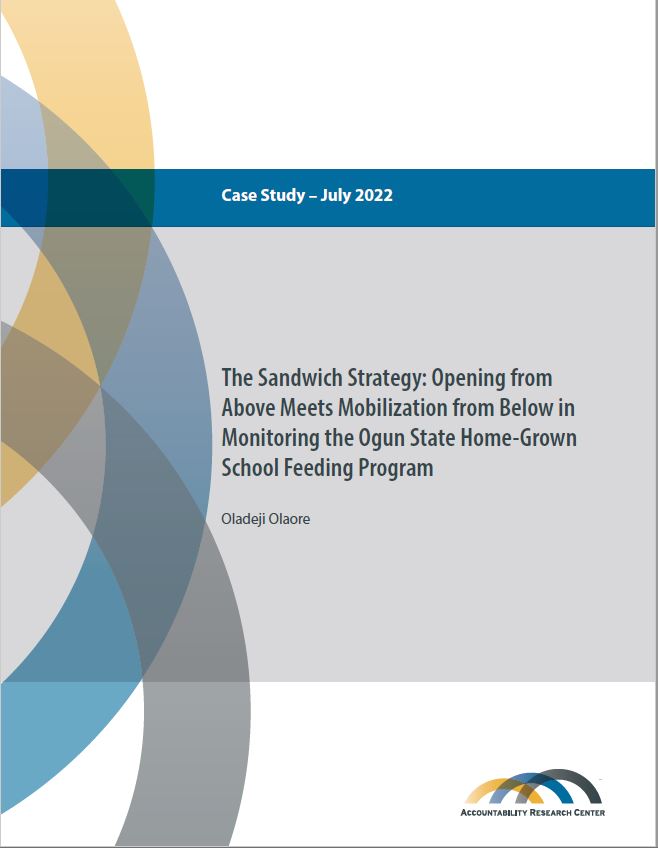[osd_social_media_sharing]

The Sandwich Strategy: Opening from Above Meets Mobilization from Below in Monitoring the Ogun State Home-Grown School Feeding Program
Date: July 2022
Author(s): Oladeji Olaore
Publication type:
Published by: Accountability Research Center
“Sandwich strategies” are interactive processes in which reformers in government take tangible measures that reduce the risks of citizen action from below, driving virtuous circles of mutual empowerment between pro-accountability actors in state and society. This case study is one of a set of 18 published here, which are among those included in comparative analyses of whether and how sandwich strategy initiatives drive institutional change.
The Home-Grown School Feeding Program in Nigeria is one of the five components of the National Social Investment Programme. Launched in 2016, it aims to provide meals at school, using locally produced food, to children in first through third grades. This case study discusses the program in Ogun state, where CSOs and community-based organizations—supported by the MacArthur Foundation—used space negotiated by reformers in government to promote transparency and accountability.
A coalition of CSOs monitored the free meal program operations in 140 schools in 11 of the state’s 20 local government areas. Supportive senior program officials provided local community monitors with formal letters of introduction to access program operations, overcoming bureaucratic hurdles and engaging with parent-teacher committees. Initial tensions with cooks and suspicious local officials were overcome through dialogue with the program office. The lead CSO provided extensive training for anti-corruption, which was reinforced by regular multi-stakeholder meetings to discuss monitoring findings at local and state levels. Advocacy with food providers increased very small protein portion sizes. Direct payments to cooks reduced leakage.
Local public oversight efforts expanded to cover other programs. After the 2019 elections, however, changes in both national and state governments disrupted this momentum. Program operations were suspended even before the Covid-19 pandemic.
